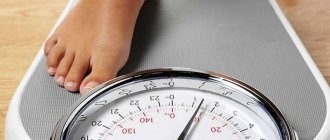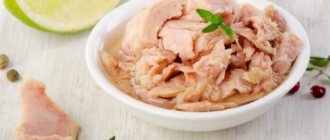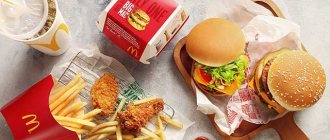A lot of controversy in the field of dietary nutrition arises around the potato diet. Some people are sure that this vegetable does not meet the criteria for “healthy nutrition”. However, this is a wrong point of view - potatoes can benefit the body, but for this they need to be consumed wisely.
Is there a difference between fried, baked, boiled potatoes, chips, mashed potatoes, how to spend a fasting day on potatoes, and what nutritionists think about it, we will tell you in detail in the article.
Calorie content, BJU and glycemic index of potatoes
The calorie content of potatoes is 72 kcal per 100 g, the same amount accounts for 2.02 g of protein, 0.09 g of fat and 17.47 g of carbohydrates.
The glycemic index of a vegetable depends on the method of its preparation.
Boiled potatoes with skins have an index of 65, without skins - 70, mashed potatoes with milk and butter - 80, baked - about 90, and fried - 95.
Can potatoes cleanse the body?
Maybe. And it does this very effectively: it cleanses the entire body, especially the liver, blood, mucous membranes, and gastrointestinal tract, providing a person with all the necessary minerals and vitamins. At the same time, it normalizes metabolism, removes waste, toxins and strengthens the immune system. There are many diets based on potatoes.
The vegetable is rich in complex carbohydrates, fiber, and various microelements - it is important to include it in the menu of both adults and children. Potatoes are especially useful for people with serious physical exertion - potatoes give strength and guarantee long-term satiety, help strengthen muscles, including the heart.
Attention! Only good quality potatoes without green spots and sprouts are suitable for cleansing the body.
The benefits and harms of potatoes
The benefits of cleansing the body with potatoes are much greater than the harm, but you also need to know about the disadvantages of the process.
The positive impact is as follows:
- After the procedure, lightness and a surge of energy appear.
- Cholesterol levels in the blood decrease, excess fluid disappears, and swelling disappears.
- The risk of infectious and colds is reduced.
- The general condition and mood improves.
- Easy to prepare, combined with any other products, and also low cost.
But such unloading has its drawbacks:
- When eating potatoes during the day, you often feel very thirsty. It is recommended to drink a glass of water without gas, salt and sugar 30 minutes before meals and an hour after.
- People with diabetes are prohibited from fasting potato days due to the high glycemic index of the product.
Rules for fasting days
Fasting days are the same as a diet, which is why it is important to follow certain rules so that the procedure does not cause harm:
- It is recommended to “unload” no more than four times a month, that is, weekly.
- Food gives a person energy: if you decide to reduce the amount of food, give up physical activity during this time so that the body retains strength. For an overtired body, a fasting day can become dangerous.
- If this is your first time conducting such an experiment, carefully monitor your well-being. It is best to choose a day off for the procedure.
- 1.5-2 kg of vegetables is the optimal daily food volume during unloading.
- They come out of fasting days gradually, so as not to harm their health. Portions are increased without sudden jumps. Heavy meat and fish products are recommended to be introduced no earlier than 3-4 days after the end of the diet.
Types of fasting days on potatoes
There are many types of vegetable unloadings. Potatoes are consumed as an independent dish or in combination with other vegetables and products.
On baked potatoes
It is advisable to bake the vegetable in the oven or slow cooker, so it fully retains all its important nutrients.
The baking scheme looks like this:
- Wash the potatoes, cut them in half without cutting off the skins, and place them on a baking sheet or in a slow cooker.
- Root vegetables are baked until fully cooked for 25-30 minutes without using spices; they stimulate the appetite and slow down the cleaning process - for example, salt retains water.
- The total volume of baked vegetables should not exceed 1.5 kg.
Divide the baked potatoes into five 300g portions and eat every 3 hours. This unloading is useful not only for weight loss, but also as a prevention of a number of diseases of the circulatory and excretory systems.
On puree
What could be easier than eating mashed potatoes all day? It's tasty , satisfying and healthy. It is easy to carry out such unloading; the menu can be varied . For example, you can put a small piece of butter or a teaspoon of vegetable oil in a dish; it is appropriate to dilute the puree with milk in moderation.
Important! The total volume of mashed potatoes consumed is significantly less than baked or boiled potatoes. No more than one kilogram of the finished product is consumed per day.
Divide the puree into small portions and consume as needed, and drink water or herbal tea between meals.
Boiled in its uniform
The most vitamins and substances beneficial to the body are found in young potatoes cooked in their jackets. It is preferable to eat a vegetable with a peel in the fall, immediately after harvesting, when the “uniform” has not yet begun to lose its valuable properties.
Before use, root vegetables are thoroughly washed. Then put it in a saucepan and boil it in water or steam. Another option is to bake vegetables in the oven.
Potatoes cooked in their jackets are not salted to avoid fluid retention in the body. For variety, add a few drops of olive or any other vegetable oil to the dish and sprinkle with chopped herbs.
On regular boiled
Boil 1.5 kg of potatoes in advance and divide this amount into portions that you will eat all day. In the morning before meals, drink a glass of low-fat milk. Do not use salt and other spices; diversify your diet with a small piece of butter or a teaspoon of vegetable oil, a tablespoon of sour cream and any herbs.
Don’t forget about water—about 2 liters per day are required, depending on the person’s weight.
With kefir
The best food combination for potatoes is fermented milk products. Paired with kefir, unloading the body will be satisfying and easy. To carry out the procedure, boil or bake 1.3-1.5 kg of tubers in advance. Divide foods into portions and drink a glass of kefir after each meal. Do this throughout the day; try to choose low-fat kefir.
It is allowed to supplement the diet with unsweetened tea and water in unlimited quantities. Such cleansing of the body can contribute to weight loss of up to 1.5 kg.
With vegetables
All vegetables go well with potatoes, besides, they are rich in vitamins and most often low in calories. This cleansing of the body will not only be tasty, but also healthy. Combine a kilogram of boiled or baked potatoes with 500 g of various vegetables throughout the day.
The best option is salads , that is, raw vegetables: they are more effective. Dress salads with olive or any other type of oil. Avoid sour cream, mayonnaise and soy sauce - the calorie content of such dishes immediately doubles. It is not advisable to add salt; it is better to sprinkle fresh lemon juice on your salads.
With cabbage
The tandem of potatoes and cabbage will not only help you lose weight , but will also perfectly cleanse your body of waste and toxins . With such a diet, satiety comes quickly, you don’t feel hungry, but your metabolism speeds up. It is important to avoid salt and spices and replace them with oil or fresh lemon juice.
Any type of cabbage is suitable, it can be white cabbage, Brussels sprouts, broccoli, Peking cabbage, Savoy or cauliflower. Boil or bake a kilogram of potatoes, chop 500 g of cabbage and eat as a salad.
You can stew all the vegetables in a frying pan or boil them in a saucepan, it’s up to you to decide which is tastier and easier. A day of such fasting will reduce your weight by about 1 kg.
Reference. During the unloading process, the body will intensively cleanse itself, remove excess fluid and toxins, so in order to avoid embarrassment, it is recommended to spend this day at home.
Potato
Encyclopedia of Health / Encyclopedia of Proper Nutrition
Some people think that potatoes don’t make you fat at all and you can even lose weight on them, others call them enemy figure No. 1. Who’s right?
Nutritionists believe that potatoes are closer not to vegetables, but... to bananas. There is too much starch in it - hence the controversy surrounding this product from a weight loss point of view. Many categorically claim that they gain weight not from potatoes themselves, but from their combination with a large amount of animal fats. They conducted experiments: volunteers lived for a long time on potatoes alone, ate them without restrictions - and no one got fat.
However, there are other opinions. “Healthy nutrition specialist” Montignac insists on avoiding potatoes - the glycemic index is high. Potatoes are strictly excluded from protein diets. And William Banting, the ideological predecessor of Robert Atkins, attributed all of the world's obesity to potatoes and pasta...
POTATO PLUSES
Potatoes contain few simple sugars, no fat at all, but they contain organic acids and fiber that are useful for digestion, vegetable protein and a lot of other valuable substances.
Vitamin C in fresh new potatoes is only half that of citrus fruits. Even the long-distance sailors and gold miners of Alaska knew this - they ate the tubers raw to escape scurvy.
Potassium, which potatoes are rich in, helps remove excess fluid. And this is useful for both obese people and those who are prone to edema.
Young potatoes are healthier than old ones - both for health and for your figure.
Potatoes are a salvation for gastritis and colitis; they are useful for high acidity - they neutralize acid. Gastroenterologists even recommend layering it with other foods: starting your meal with mashed potatoes.
And what is also important for those losing weight is that potato dishes are quite filling.
POTATO CONS
Excess starch is good for a sore stomach, but not for a “floating” waist. Starch begins to transform into glucose already in the oral cavity, and excess glucose, through a chain of biochemical transformations, in turn, is stored “in reserve” in the form of fat. One good thing is that there is less starch in new potatoes.
Potatoes are high in calories - 80 kcal per 100 g (and this is just one medium tuber). The same amount of calories is contained in 100 g of lean meat, lean fish and poultry, and in one chicken egg. Therefore, if every calorie is strictly accounted for, it is better to give preference to protein products rather than potatoes.
The content of vitamin C decreases significantly during storage, and it can be completely lost - if you prepare dishes incorrectly, reheat them, or keep peeled tubers in water for a long time.
SHAMEFUL POTATO ROW Chips. The calorie content is like chocolate, 500-550 kcal, but there is zero benefit. And it cannot be in dried pressed starch, soaked in oil, thickly salted and peppered, with flavorings of an unknown nature. Chips do not provide any satiety: you can eat five 50-gram packets (about 3000 kcal), and remain hungry, and even die of thirst. In addition, after eating something salty, you always crave something sweet – that’s why chips are sold next to sweet carbonated drinks.
Chips are a killer combination for health and slimness!
French fries. Calorie content depends on the amount of oil spent in the deep fryer. But don’t count on less than 400 kcal. This dish satisfies better than chips; vitamins and minerals are partially preserved in it. But if you watch your figure, you can afford a maximum of 3-5 slices.
Cool baked potatoes : although they have a pleasant amber color and smell appetizing, they are hard and dehydrated. It is poorly digested, it strains the stomach, and it can injure the intestines.
Stewed potatoes with meat, a lot of fat, salt and spices: high in calories, heavy on the stomach and makes you thirsty.
HOW TO BUILD A RELATIONSHIP WITH POTATOES
How to cook. Let’s give preference to the four “healthiest” options. 1) Thin mashed potatoes with water are the least high-calorie potato dish. 2) Young potatoes, boiled in their skins - it is generally better to eat them with the peel, then you will get all the useful substances and fiber, which saturates well and improves peristalsis. 3) Jacket potatoes baked in the oven in foil: everything valuable is preserved as much as possible, and fat content is minimal. 4) Steamed potatoes are the most dietary dish.
With what to eat. The worst combination for your figure is potatoes plus butter or fatty meat. For potato lovers, it is better to cook it with vegetable oil, low-fat sour cream or fish. Potatoes go well with all vegetables, herbs, citrus juice, apples, seafood, mushrooms, sauerkraut, and pickles.
Potato fasting days - 500-600 g of potatoes boiled in their jackets, or in the form of potato soup - are useful for everyone. They cleanse the stomach and intestines and remove excess fluid.
Possible harm and contraindications
Potato unloading has its contraindications and is not suitable for everyone. Before planning the procedure, familiarize yourself with the possible harm that improper cleaning can cause, and carefully read the contraindications. Consult your doctor.
Unloading with potatoes is prohibited when:
- Diabetes mellitus.
- Diseases of the excretory system.
- Diseases of the kidneys, liver and intestines.
- Increased gas formation, with gastritis in the acute stage.
In addition, it is not recommended to unload pregnant women and mothers during lactation.
Nutritionist's opinion
Nutritionist Elena Starikova believes that it is difficult for people suffering from hypertension, cardiovascular failure and kidney disease to maintain a strict diet. Therefore, the easiest way is to do a potato fasting day, nothing more. It will be both healthy and satisfying. He recommends that everyone do it at least once a month for prevention purposes.
Diet for hypertensive patients and heart patients - menu for every day
Diet for hypertension
1. I went to a cardiologist, they prescribed me a blood pressure medication and advised me to see a nutritionist for a diet for hypertension and heart patients. Why do you need a diet if medications are prescribed anyway?
Very often, hypertension is caused by poor nutrition, as a result of which a person gains fat. Excess adipose tissue always causes fluid retention in the intercellular space. It puts pressure on the blood capillaries, creating a spasm. This spasm is transmitted to the arteries, which also narrow. To push blood into the narrow lumen, the heart begins to increase pressure. Reducing the amount of fat and water in the body always helps to reduce the dose of medications for hypertension and even stop them completely.
2. If I am hypertensive, what foods should I not eat? And which ones, on the contrary, are useful?
There is nothing complicated here: you need to remove those foods that contribute to weight gain and water retention. That is, these are all fatty foods, dishes where fats are combined with large amounts of carbohydrates, as well as fried foods. They all contain a lot of salt, i.e. sodium, which retains water. In addition, the combination of salt and sugar is a favorite chef's move when preparing any sauces, pastry creams and dough, cookies, even chocolate. Salt sets off sugar and thereby increases the palatability of food. So, as you can see, by giving up fast food, ready-made sauces, baked goods, fatty and fried foods, you will significantly reduce the amount of sodium, fat and simple carbohydrates in your diet.
Healthy foods in a diet for hypertensive patients are vegetables: zucchini, eggplant, cucumbers, leafy greens, all types of cabbage, carrots, radishes, daikon. They contain a lot of potassium, which, as opposed to sodium, removes excess water.
Mushrooms, contrary to popular belief, are a very light and healthy food that is easily digestible. They are similar in chemical composition to zucchini and can be added to vegetable stews, grilled and used as a side dish. The main thing is not to add cream and cheese to the mushrooms!
3. I really love salads, but for some reason my weight and blood pressure do not decrease. What's the matter?
What kind of salads exactly? For example, there are so-called “table” salads - “Herring under a fur coat”, “Olivier”, “Mimosa”... They contain a large amount of carbohydrates (potatoes, corn, etc.) generously dressed with mayonnaise! This is just a “bomb” both in calories and sodium. Salads made from fresh and green vegetables are safe as long as you do not top them with mayonnaise or large amounts of vegetable oil. The correct salad dressing for hypertensive patients is natural yogurt with added spices (mustard, ground pepper, garlic, curry, turmeric), or low-fat sour cream (10%). As an option - a dietary vinaigrette: reduce the amount of potatoes, and instead add green peas, different types of onions and sauerkraut, season with a spoon of vegetable oil. Use a small spoon, since 100 g of such oil contains almost 1000 kcal, and for a hypertensive patient this is completely useless.
By the way, fish oil is the only fat that is beneficial for hypertension. It contains polyunsaturated fatty acids that protect blood vessels from cholesterol plaques. Eat any fatty fish, but better at lunch: heavy food at night is undesirable.
Diet for hypertension for a week - recommendations from a nutritionist
4. Recommend a diet for a hypertensive patient for a week.
Of course, it is best to create a diet individually, since the serving size must be calculated based on the weight of a particular person. Here is an approximate diet for a hypertensive patient. You need to drink 1.5-2 liters of water per day; coffee and tea are allowed without sugar.
Monday
Breakfast: buckwheat porridge (40 g dry cereal), cooked in water + 150 ml milk 1%, 10 g dark chocolate.
Snack: 1 piece of black bread (30 g), spread with 1 tbsp. l. curd cheese.
Lunch: soup 300 ml (light vegetable soup or borscht in a rich broth - fish, chicken, vegetable), chicken breast baked with herbs in foil (150 g), salad (200 g white cabbage + 50 g carrots, water for 1 hour .l olive oil, sprinkle with herbs).
Snack: 1 apple.
Dinner: 2 medium peppers stuffed with minced meat, 2 tomatoes, a glass of kefir.
Tuesday
Fasting day. Don't starve! For example, 700 g of fruits and berries + 800 g of stewed vegetables. Eat every 3 hours without waiting for hunger. Days on fermented milk products, low-fat fish or meat with vegetables are possible.
Wednesday
Breakfast: rolled oatmeal porridge (50 g of dry cereal) in water with the addition of 100 g of milk 0.5% with 1 tsp. honey, 10 g dark chocolate, chicory.
Snack: 1 apple.
Lunch: soup 300 ml, eggplant stew (300 g), tea without sugar.
Snack: 300 g of any berries (except grapes).
Dinner: cottage cheese 0.5% (200 g), mixed with 1 jar of natural milk yogurt (125 g), 100 g of any berries, 1 banana.
Thursday
Breakfast: omelet of 2 eggs and 1% milk, steamed, sprinkled with herbs, 30 g bran bread, 1 tomato.
Snack: 1 orange.
Lunch: soup 300 ml, steamed fish without salt with herbs (150 g), boiled cauliflower (250 g).
Snack: 2 any fruits
Dinner: 1 eggplant stuffed with minced meat, 1 tomato, 1 cucumber, a glass of ryazhenka 0.5%
Friday
Breakfast: cottage cheese 0.5% (200 g), mixed with 1 jar of natural milk yoghurt (125 g), grated pear.
Snack: 1 banana.
Lunch: Soup 300 ml, chicken breast baked with herbs in foil (150 g) or boiled, salad of any lettuce leaves (30 g), cucumbers (100 g), sweet pepper (100 g), herbs with 1 tsp. l. vegetable oil.
Snack: 2 any fruits.
Dinner: stewed white cabbage (300 g) with carrots (150 g), onions for 1 tsp. vegetable oil, with herbs, 150 g boiled beans.
Saturday
Breakfast: 2 egg omelet with mushrooms and herbs, 1 cucumber, 30 g bran bread
Snack: 1 orange.
Lunch: soup 300 ml, tomato salad with Mozzarella cheese and low-fat dressing 200 g, lettuce.
Snack: grapefruit
Dinner: steamed or grilled fish (150 g), boiled cauliflower (300 g), 2 tomatoes, a glass of matsoni 0.5%.
Sunday
Breakfast: hot sandwich (on 50 g of black bread, put 2 pieces of ham or chicken (30 g), 1 sliced tomato, sprinkle with grated cheese (30 g), bake in a microwave or convection oven, sprinkle with herbs); 10 g dark chocolate.
Snack: 2 fruits.
Lunch: soup 300 ml, beef steak (grilled, grilled, but not fast-fried) 100 g, lettuce, 1 cucumber, 3 cherry tomatoes
Snack: 2 kiwis
Dinner: 150 g of boiled beans, 2 tomatoes, a glass of kefir 0.5%.
Reviews
Many people like potato fasting days; people are happy to write reviews and comments, give advice and recommendations - the simplicity, accessibility and ease of the procedure are captivating.
Irina Lebedeva, Shakhty : “I am very pleased with the results of the fasting day on boiled potatoes. Lightness in the body, great mood, a surge of energy and loss of almost a kilogram of excess weight. Now I will do this type of cleaning once every 10 days, it’s simple and convenient.”
Marina Tarasova, Kaliningrad: “I always thought that potatoes were too high in calories for a diet and peeling, but a friend advised me to try a fasting day on jacket potatoes. It lasted three days without much effort! No feeling of hunger or irritation, as I get when I deny myself my favorite foods. Very easy and pleasant. At the same time, I lost two kilograms, but that was not important to me. Finally, the stool has returned to normal, the swelling in the legs and heartburn have gone away! I recommend it to everyone, try it, you won’t regret it.”
Fasting day on potatoes (also sour cream, onion, dill, parsley)
Potatoes have been a favorite dish of many of us since the time of Peter I. It is difficult to imagine our life without this wonderful vegetable. Are potatoes healthy? Can it be used for weight loss? Of course"!
Benefits of a fasting day on potatoes:
Fasting days on potatoes are good because during them you do not feel hungry at all. A potato fasting day promotes deep cleansing of the intestines and the fight against excess weight.
Potatoes contain essential amino acids (for example, lysine), vitamin B2 and pectins, and they also contain many essential minerals: calcium, magnesium, phosphorus, iron, iodine, sodium, zinc, copper, cobalt.
Potato fasting days are very useful for nephritis, hypertension, and circulatory failure. Antioxidants, which are part of potatoes, fight the signs of aging in the body and prolong youth.
100 grams of potatoes contain only 72.7 kcal.
The essence of a fasting day on potatoes:
In order to spend a fasting day on potatoes, you will need 1.5 kg of potatoes. This fasting day is very suitable for those who suffer from high blood pressure and kidney disease. In addition, you lose from 700 grams to 1 kg of excess weight.
It is recommended to carry out such unloading no more than once a week.
Recipe for a fasting day with potatoes:
We bake 1.5 kg of jacket potatoes, divide them into 5 portions, and eat them without salt or seasonings. You can only drink pure water (1.5 liters per day), herbal infusions and green tea without sugar. You can supplement your diet with low-fat sour cream, and in order to improve the taste of potatoes, you can sprinkle them with fresh, fragrant dill, parsley or green onions.
Reviews about fasting day on potatoes:
A fasting day on potatoes brings great benefits to our body. A potato fasting day belongs to the category of nourishing meal plans, so you will not starve, therefore, such a fasting will not bring you any problems. As people who sat on such a fasting day noted, it passed quickly, the day was not hungry, but even very tasty, especially if it was new potatoes baked over a fire.
However, there are contraindications for those people who have intestinal problems (colitis, enterocolitis), urolithiasis, and a tendency to flatulence. Patients with diabetes are advised to soak potatoes in water for a long time, and only then eat them.
Eat potatoes for your health! Take advantage of its beneficial properties! However, before you start fasting on potatoes, be sure to consult your doctor or therapist.











